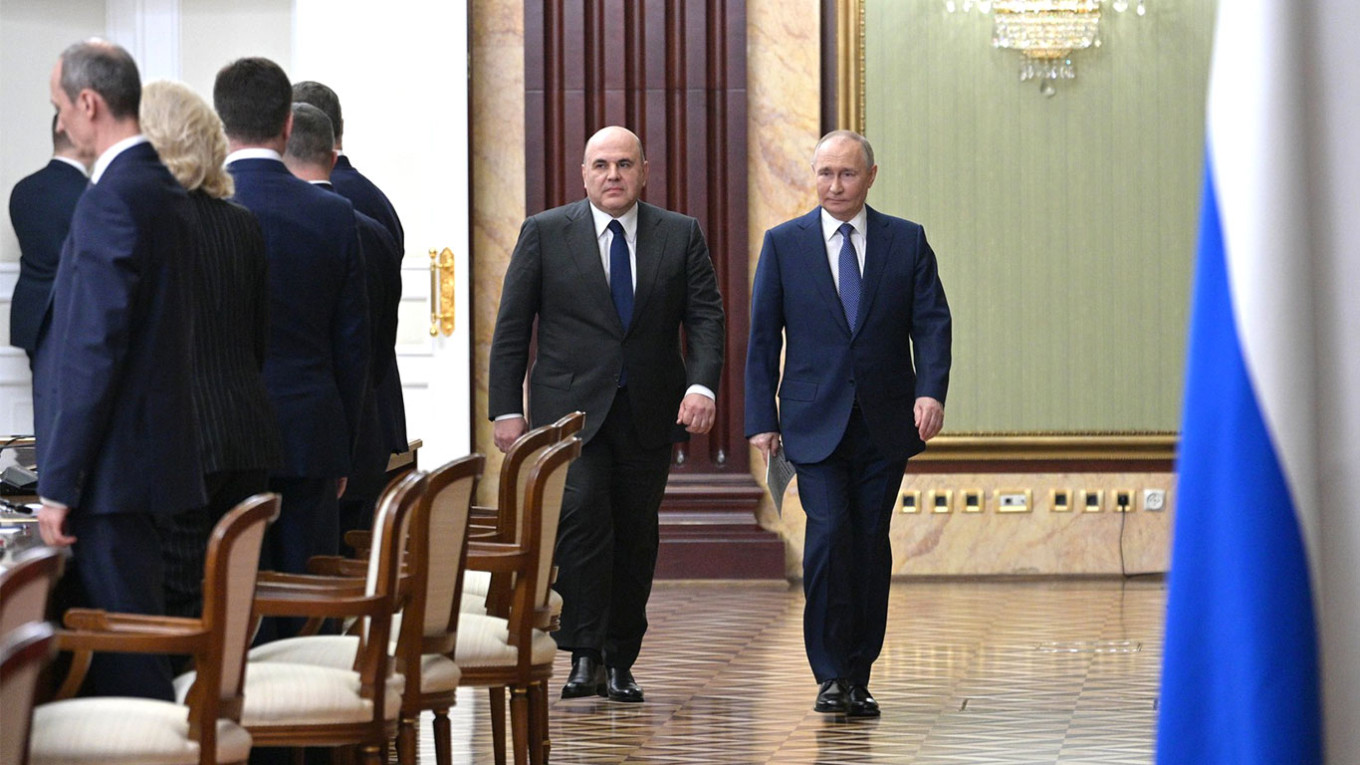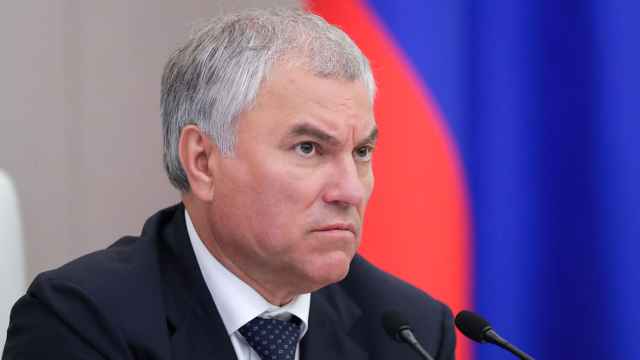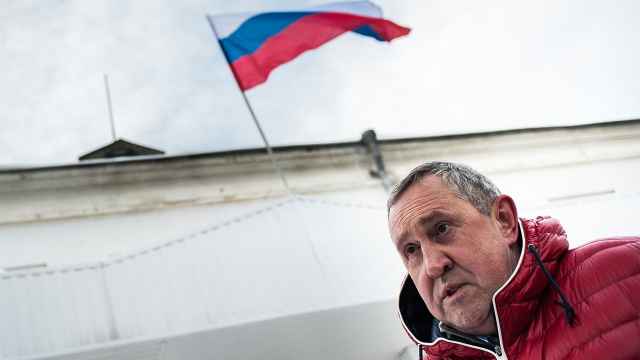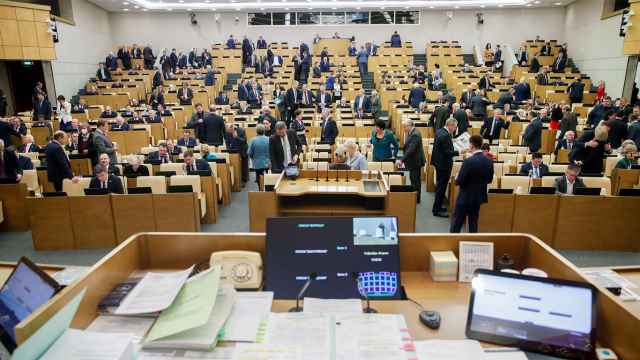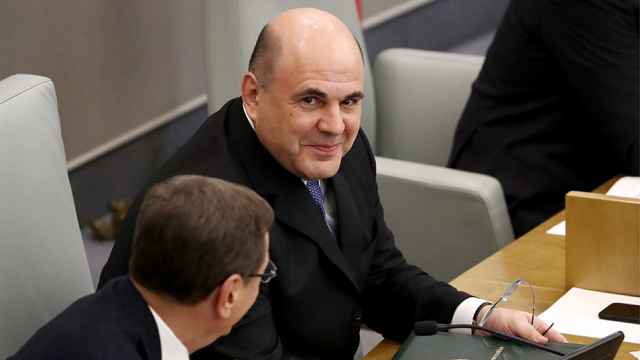Updated with voting results.
Russian lawmakers on Friday approved President Vladimir Putin’s nomination of Mikhail Mishustin to return as prime minister, a sign that the Kremlin is banking on continuity and stability as it presses ahead with its full-scale war against Ukraine.
Mishustin, a low-profile technocrat who has steered Russia’s economy through a storm of Western sanctions and other wartime challenges, signed his resignation and dissolved his cabinet — as required by Russia’s Constitution — after Putin was sworn in for his fifth term on Tuesday.
Russia’s lower-house State Duma voted 375-0 in favor of his return to the role of prime minister, with the only sign of dissent coming from 57 members of the Communist Party, who abstained from the vote.
In a speech to lawmakers on Friday, Mishustin avoided directly mentioning Russia’s invasion of Ukraine, addressing only “welfare payments and military equipment for our guys” once toward the end.
“Despite the differing views on many issues, today you have first and foremost expressed support for the president’s decisions,” he told lawmakers after the vote.
Statue Duma speaker Vyacheslav Volodin, who was the first to announce Putin’s nomination of Mishustin early Friday, said later that the lower house of parliament would consider the prime minister’s choice of candidates for deputies and cabinet ministers early next week.
Mishustin had arrived at the State Duma around noon on Friday for talks with members of the five parties represented in Russia’s parliament. Senior lawmakers and their parties had indicated that they planned to support his reappointment.
However, Communist Party leader Gennady Zyuganov announced after a meeting with Mishustin that his faction — which holds 57 out of the 450 Duma seats — would abstain from the voting.
“We do not believe the government has made the kind of progress in its work as we had hoped for,” an anonymous Communist Party member, who was present at Friday’s meeting, was quoted as saying by the Interfax news agency.
Telegram channels that position themselves as Kremlin insiders shared a timetable of Mishustin’s meetings with the five parliamentary parties, where only 20 minutes was allocated to each sit-down.
Normally, consultations and interviews with prime minister candidates would take days, whereas Friday’s procedures took less than three hours before parliament approved the prime minister's nomination.
Analysts considered Mishustin’s reappointment as all but guaranteed, with Putin signaling continuity and approval of his wartime government’s domestic policy achievements.
In a pre-recorded meeting that was aired on state television as Mishustin met with lawmakers, Putin told the prime minister that he hoped the head of government would “be able to convince the State Duma deputies about the nominees for your deputies and federal ministers.”
“I want to assure you there will be no pause in the work of the government. We’ll continue our current work,” Mishustin told the Russian leader.
Putin replaced former Prime Minister Dmitry Medvedev in 2020 with the little-known former tax chief Mishustin as part of a wider push to jumpstart Russia’s economy and change the Russian Constitution. The constitutional amendments passed later that summer will allow the longtime Kremlin chief to remain in power until 2036.
Before being appointed prime minister, Mishustin served as the head of the Federal Tax Service for nearly a decade. He was also a member of the Presidential Council for Financial Market Development between 2011 and 2018.
Once appointed, the new head of government is expected to propose a cabinet of ministers for Putin’s and lawmakers’ approval. State media reports indicate there are no major reshuffles planned.
A Message from The Moscow Times:
Dear readers,
We are facing unprecedented challenges. Russia's Prosecutor General's Office has designated The Moscow Times as an "undesirable" organization, criminalizing our work and putting our staff at risk of prosecution. This follows our earlier unjust labeling as a "foreign agent."
These actions are direct attempts to silence independent journalism in Russia. The authorities claim our work "discredits the decisions of the Russian leadership." We see things differently: we strive to provide accurate, unbiased reporting on Russia.
We, the journalists of The Moscow Times, refuse to be silenced. But to continue our work, we need your help.
Your support, no matter how small, makes a world of difference. If you can, please support us monthly starting from just $2. It's quick to set up, and every contribution makes a significant impact.
By supporting The Moscow Times, you're defending open, independent journalism in the face of repression. Thank you for standing with us.
Remind me later.


